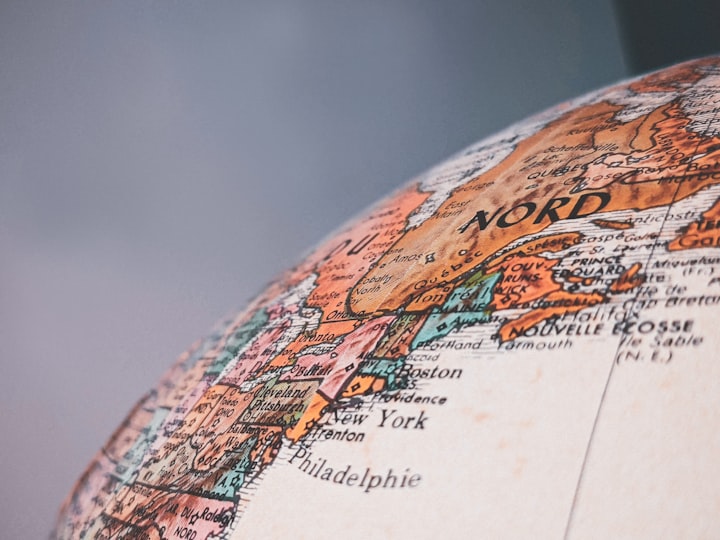THE IMPACT OF LINGUISTICS IN THE S0CIETY AND DIPLOMACY
importance of linguistics
Linguistic diversity refers to the variety of languages spoken in a particular region or among a group. Promoting language diversity in the translation industry is essential as it helps preserve languages and cultures while promoting better understanding and communication between communities. Simply put, linguistics is the study of language, how it works, how it is acquired, and how people use it to communicate. Although linguists are often interested in and can speak a variety of languages, linguists know more about how language works, rather than having the ability to speak and understand multiple languages. A polyglot is a person who speaks a multitude of languages.
Diplomacy involves the practice of representing and promoting the interests of a nation in international relations. Effective diplomacy relies heavily on clear and precise communication, making linguistics a fundamental aspect of this field. This essay explores the multifaceted impact of linguistics in diplomacy, covering its role in fostering effective communication, aiding negotiation and conflict resolution, promoting cultural understanding, and facilitating international collaboration.
First and foremost, linguistics is pivotal in fostering effective communication in diplomacy. Diplomats engage in various forms of communication, including verbal and written exchanges, speeches, negotiations, and conferences. Language is the medium through which ideas, policies, and intentions are conveyed. Proficiency in the language of the interlocutor and an understanding of their cultural nuances greatly enhance diplomatic interactions. A diplomat who is well-versed in the language and etiquette of the host country can establish rapport, build trust, and facilitate smoother negotiations. Misunderstandings resulting from linguistic errors or misinterpretations can have far-reaching consequences in diplomatic relations, making linguistic accuracy and cultural sensitivity paramount.
Secondly, linguistics aids negotiation and conflict resolution in diplomacy. Negotiation is a core aspect of diplomacy, requiring diplomats to articulate their positions, propose compromises, and seek common ground. Linguistics enables diplomats to employ persuasive language, rhetoric, and diplomatic discourse strategies to advocate for their country's interests effectively. The choice of words, tone, and delivery can influence the outcome of negotiations. Linguistic analysis helps diplomats understand the underlying intentions and motivations of the opposing party, enabling them to tailor their responses and proposals appropriately.
Moreover, conflict resolution heavily relies on effective communication and understanding. Linguistics facilitates the framing of peace treaties, agreements, and resolutions by ensuring that the language used is precise, unambiguous, and legally binding. Ambiguity or misinterpretations in wording can potentially lead to future disputes or conflicts. Linguistic experts are often consulted to draft documents that are clear, inclusive, and acceptable to all parties involved, contributing to the successful resolution of conflicts and the establishment of lasting peace.
Furthermore, linguistics promotes cultural understanding in diplomacy. Language is deeply intertwined with culture, reflecting the beliefs, values, and history of a community. Understanding the linguistic and cultural context of a nation is crucial for effective diplomacy. It allows diplomats to comprehend the subtle nuances in communication, such as indirect speech, nonverbal cues, and implied meanings, which are essential for successful intercultural interactions. Demonstrating respect for a nation's language and culture fosters positive diplomatic relations and strengthens international cooperation.
In addition to fostering understanding, linguistics contributes to international collaboration and diplomacy by promoting multilingualism and translation. In a globalized world, multilingualism is an asset in diplomacy as it allows diplomats to engage with a broader audience and access diverse perspectives. Moreover, accurate and nuanced translation services are essential for ensuring that diplomatic documents and speeches are accurately conveyed in multiple languages, preventing misinterpretations that could damage diplomatic relations.
- Linguistics also plays a crucial role in public diplomacy and propaganda, influencing public opinion and shaping narratives. The choice of language, framing, and rhetoric can significantly impact how policies and actions are perceived internationally. Diplomats and governments use linguistic strategies to convey messages that align with their foreign policy objectives, attempting to influence global perceptions and garner support for their initiatives. Because language captures how we perceive the world around us and how we relate to one another, it defines who we are. Our first language, or the “mother tongue” we grow up with, is the one we use to express what is in our hearts; it is our heart language. Many minority-language communities are marginalized because of their cultural background, or because their heart language is not the language of power. As a result, thousands of minority-language communities do not have access to education in a language they can understand. They become trapped in a cycle of poverty and discrimination simply because they are not part of the majority language and culture The plight of minority-language communities is changing as a growing number of organizations are coming alongside such people groups. Language development is the series of ongoing planned actions that a language community takes to ensure its language continues to serve its changing social, cultural, political, economic and spiritual needs and goals. staff and faculty members have been involved in, and continue to be involved in, a wide range of cross-cultural language development work:
In conclusion, linguistics profoundly impacts diplomacy by facilitating effective communication, aiding negotiation and conflict resolution, promoting cultural understanding, and facilitating international collaboration. Proficiency in languages and an understanding of cultural subtleties are vital for successful diplomatic interactions. Linguistic expertise ensures that diplomats navigate the complexities of international relations with accuracy, precision, and cultural sensitivity, ultimately contributing to the advancement of diplomatic objectives and the maintenance of global peace and cooperation of a language having a system that correlates .







Comments (1)
Great work! Wonderful! Well written! Linguistic!